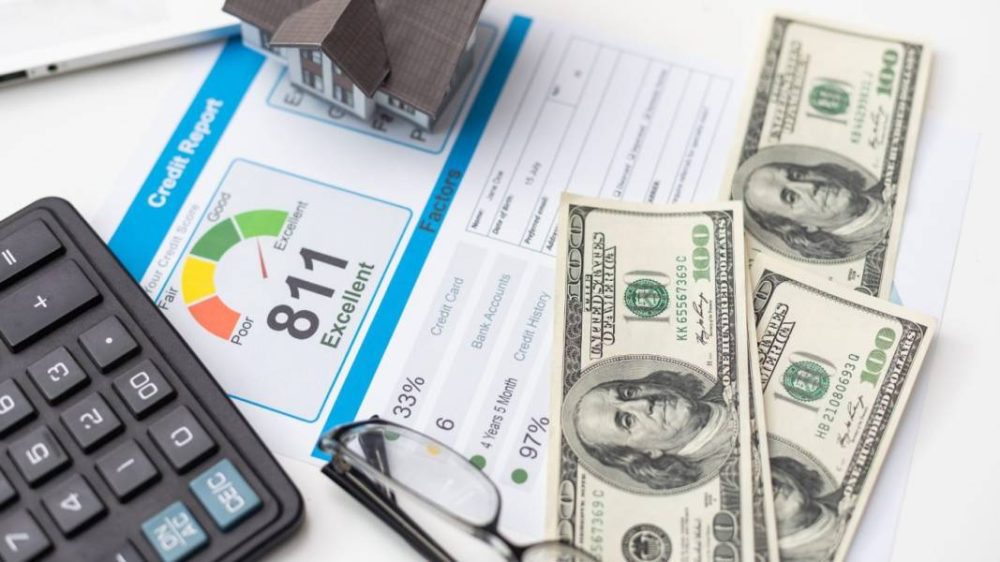For many prospective homebuyers, credit score requirements can be a significant hurdle in securing a mortgage. FHA loans, insured by the Federal Housing Administration, are designed to make homeownership accessible to a broader range of individuals, including those with low credit scores. If you’re worried that your credit score might prevent you from buying a home, an FHA loan could be the solution you need.
In this article, we’ll explore how you can qualify for an FHA loan with a low credit score, the steps you can take to improve your chances, and what you need to know about the process.

Understanding FHA Loan Credit Score Requirements
The FHA loan program is known for its lenient credit requirements, making it an excellent choice for borrowers who may not qualify for conventional loans. Here’s how credit scores impact your eligibility:
- Credit Score of 580 or Higher
Borrowers with a credit score of 580 or higher are eligible for an FHA loan with a down payment as low as 3.5% of the home’s purchase price. - Credit Score Between 500 and 579
If your credit score falls between 500 and 579, you may still qualify for an FHA loan, but you’ll need to make a larger down payment—typically at least 10% of the home’s purchase price. - Credit Score Below 500
Unfortunately, borrowers with credit scores below 500 are not eligible for an FHA loan. If your score is in this range, focusing on improving your credit score should be your priority before applying.
Why Does the FHA Allow Low Credit Scores?
The FHA’s mission is to promote homeownership by reducing barriers for individuals who may not meet the stricter requirements of conventional loans. By insuring loans for approved lenders, the FHA minimizes the risk for lenders, allowing them to extend credit to borrowers with lower credit scores or financial challenges.
Steps to Qualify for an FHA Loan with a Low Credit Score
If you have a low credit score, qualifying for an FHA loan is still achievable with the right approach. Here are the steps you should follow:
1. Assess Your Credit Report
Start by reviewing your credit report from the three major credit bureaus: Equifax, Experian, and TransUnion. Look for errors or inaccuracies, such as incorrect account balances, late payments, or accounts that don’t belong to you. Dispute any discrepancies with the credit bureau to ensure your report is accurate.
2. Pay Down Debt
Reducing your overall debt can improve your debt-to-income (DTI) ratio, which is a critical factor in qualifying for any mortgage. The FHA typically prefers borrowers with a DTI ratio of no more than 43%, though exceptions can be made in some cases. Paying off high-interest debt, such as credit cards, can have a significant positive impact on both your DTI ratio and credit score.
3. Save for a Larger Down Payment
If your credit score is below 580, saving for a down payment of at least 10% of the home’s purchase price is essential. A larger down payment demonstrates financial stability to lenders and can help offset the perceived risk of lending to a borrower with a lower credit score.
4. Provide Proof of Stable Income
Lenders will want to see that you have a consistent and reliable source of income to make your monthly mortgage payments. Gather documentation such as pay stubs, W-2 forms, and tax returns to prove your income stability. If you’re self-employed, provide profit-and-loss statements or 1099 forms.
5. Work with an FHA-Approved Lender
Not all lenders offer FHA loans, so it’s important to work with an FHA-approved lender. These lenders are experienced in working with borrowers who have low credit scores and can guide you through the qualification process. They’ll also help you understand the specific requirements and documents needed for your application.
Other Factors That Influence FHA Loan Approval
While your credit score plays a significant role in qualifying for an FHA loan, it’s not the only factor lenders consider. Here are additional elements that can impact your approval:
- Employment history
Lenders prefer borrowers with a stable employment history, typically at least two years in the same field or job. If you’ve recently changed jobs, be prepared to explain the reason for the change and provide supporting documentation. - Cash reserves
Having cash reserves, such as savings or an emergency fund, can make you a more attractive borrower. These funds show that you have a financial cushion to handle unexpected expenses or temporary income loss. - Loan limits
FHA loans have maximum loan limits that vary by location. Make sure the property you’re interested in falls within the FHA loan limits for your area. - Property requirements
The home you’re purchasing must meet certain minimum property standards set by the FHA. These requirements ensure that the property is safe, habitable, and structurally sound.
Tips for Improving Your Credit Score
If your credit score is close to the threshold for FHA loan eligibility, taking steps to improve it can increase your chances of approval. Here are some strategies to consider:
- Pay bills on time
Payment history is the most significant factor in your credit score. Make it a priority to pay all bills, including credit cards, loans, and utilities, on time. - Reduce credit card balances
Lowering your credit utilization ratio — your total credit card balances compared to your credit limit — can significantly boost your credit score. - Avoid new credit applications
Applying for new credit can result in hard inquiries, which can temporarily lower your credit score. Avoid opening new accounts while you’re preparing to apply for a mortgage. - Become an authorized user
If you have a family member or close friend with a strong credit history, ask if they’re willing to add you as an authorized user on one of their credit cards. This can improve your credit score by increasing your available credit and adding a positive payment history to your report.
The Role of Mortgage Insurance
Borrowers with FHA loans are required to pay mortgage insurance premiums (MIP) to protect lenders in case of default. This includes:
- Upfront MIP: Paid at closing, typically 1.75% of the loan amount.
- Annual MIP: Paid monthly, with the amount depending on the loan amount and term.
While MIP adds to the overall cost of the loan, it’s a trade-off for the more lenient credit and down payment requirements of an FHA loan.
Final Thoughts
Qualifying for an FHA loan with a low credit score is not only possible but also manageable with the right approach. By understanding the requirements, addressing potential challenges, and working with an experienced FHA-approved lender, you can take advantage of this accessible mortgage option to achieve your dream of homeownership.
If you’re ready to explore your FHA loan options, visit DSLD Mortgage for personalized guidance and support. With the right preparation and resources, your low credit score doesn’t have to stand in the way of owning your home.
HedgeThink.com is the fund industry’s leading news, research and analysis source for individual and institutional accredited investors and professionals

































